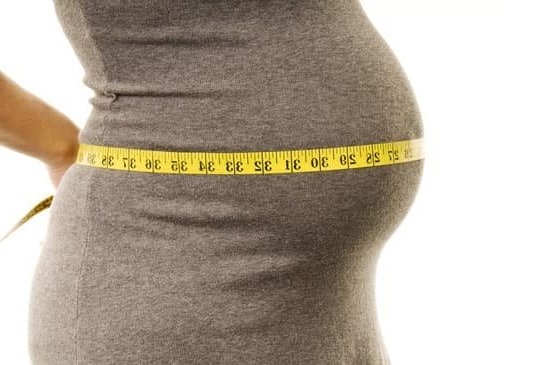Iron deficiency in pregnancy can have significant implications for the growth and development of the baby. Iron plays a crucial role in various bodily functions, including the production of hemoglobin which carries oxygen to cells throughout the body. During pregnancy, the demand for iron increases as it is essential for the formation of red blood cells and overall fetal growth. Therefore, maintaining adequate iron levels is vital for both the mother and baby’s well-being.
Iron deficiency in pregnancy occurs when there is a lack of sufficient iron to meet the increased demands during this critical time. This condition can result from dietary factors such as insufficient intake of iron-rich foods, as well as other risk factors like multiple pregnancies or heavy menstrual bleeding before conception. Without enough iron, both mother and baby can experience negative consequences that may impact their health in the short and long term.
The effects of iron deficiency on baby growth are profound, affecting fetal development and potentially leading to health issues after birth. Insufficient iron levels may result in low birth weight, premature birth, or even developmental delays later on. It is crucial for pregnant women to be aware of these risks and take necessary steps to prevent or address iron deficiency through proper diagnosis, treatment, and preventive measures.
Causes of Iron Deficiency in Pregnancy
Iron deficiency in pregnancy is a common concern that can affect both the mother and the developing baby. During pregnancy, a woman’s body goes through numerous changes to support the growth and development of the fetus.
Adequate iron levels are crucial during this time as they play a vital role in ensuring optimal oxygen supply to both the mother and the baby. Iron is essential for the production of hemoglobin, a protein in red blood cells that carries oxygen throughout the body.
Several factors can contribute to iron deficiency in pregnancy. One major cause is inadequate dietary intake of iron-rich foods. Pregnant women require more iron than usual to support their expanding blood volume and to provide for the developing baby’s needs. If the mother’s iron stores are insufficient, it can lead to deficiencies during pregnancy. Other risk factors include conditions like heavy menstrual bleeding before conceiving, multiple pregnancies, or certain medical conditions that hinder proper iron absorption.
Research studies have shown a direct link between maternal iron deficiency during pregnancy and its impact on baby growth. Insufficient iron levels can affect fetal development, leading to potential consequences for the baby’s health both at birth and later in life.
This highlights the critical importance of addressing iron deficiency through proper diagnosis, treatment, and prevention strategies during pregnancy. Early detection and intervention can iron deficiency in pregnancy affect baby growth positively influence not only the child’s immediate health but also their long-term growth and development trajectory.
| Iron Deficiency Effects on Baby Growth | Data |
|---|---|
| Impact on fetal development | Impaired growth due to inadequate oxygen supply |
| Potential consequences for baby’s health | Increased risk of preterm birth or low birth weight |
| Long-term effects on growth and development | Possible cognitive or motor delays in childhood |
Effects of Iron Deficiency on Baby Growth
Iron deficiency in pregnancy is a common concern that
Impact on Fetal Development
Iron plays a vital role in fetal development, particularly in the formation of red blood cells and overall growth. When a pregnant woman is deficient in iron, the fetus may not receive an adequate supply of this essential nutrient, leading to potential complications.
Iron deficiency during pregnancy has been linked to low birth weight, preterm birth, and even developmental delays in infants. Ensuring optimal iron levels through proper supplementation and dietary measures is critical for supporting healthy fetal growth and development.
Potential Consequences for the Baby’s Health
In addition to affecting physical growth, iron deficiency in pregnancy
Furthermore, research suggests that infants born to mothers with iron deficiency may have an increased susceptibility to infections and other health issues. Addressing iron deficiency during pregnancy is essential for reducing these risks and promoting optimal health outcomes for the baby.
Long-Term Effects on Growth and Development
The effects of iron deficiency on baby growth extend beyond infancy and
Poor academic performance, behavioral problems, and decreased cognitive function are potential outcomes of inadequate iron levels during fetal development. Investing in addressing iron deficiency early on is crucial for preventing these long-term effects on a child’s growth and development trajectory.
Diagnosis of Iron Deficiency in Pregnancy
Iron deficiency in pregnancy is a common concern that can have serious implications for both the mother and the developing baby. A lack of iron during pregnancy can lead to several complications, with one of the most concerning being its effect on baby growth.
Iron is essential for the healthy development of the fetus, as it plays a vital role in oxygen transport and overall growth. Without an adequate supply of iron, the baby’s growth and development may be compromised.
Research has shown that iron deficiency in pregnancy can indeed affect baby growth significantly. Studies have demonstrated a link between maternal iron levels and birth outcomes, including low birth weight and premature births. Babies born to mothers with untreated iron deficiency are at higher risk of health complications during infancy and may even experience long-term effects on their growth and development well into childhood.
Early diagnosis of iron deficiency in pregnancy is crucial to prevent any adverse effects on the baby’s growth. Some common symptoms to look out for include fatigue, weakness, pale skin, shortness of breath, and increased heart rate.
Healthcare providers typically conduct screening tests for iron deficiency during prenatal care visits to monitor the mother’s levels closely. Early detection allows for timely intervention through appropriate treatment measures like iron supplementation or dietary modifications to ensure healthy baby growth throughout pregnancy.
| Effect of Iron Deficiency | Impact on Baby Growth |
|---|---|
| Low birth weight | Affects overall development |
| Premature births | Risk of health complications |
| Long-term growth issues | Potential developmental delays |
Treatment and Prevention of Iron Deficiency
Iron deficiency in pregnancy can have significant implications for the growth and development of the baby. Ensuring adequate iron levels is crucial during this time to support the health of both the mother and the growing fetus. Here are some key strategies for treating and preventing iron deficiency during pregnancy:
- Iron supplementation during pregnancy: Taking prescribed iron supplements can help boost iron levels in pregnant women. It’s essential to follow the healthcare provider’s recommendations regarding dosage and frequency to effectively address the deficiency.
- Dietary recommendations for increasing iron intake: Consuming iron-rich foods such as lean meats, poultry, fish, legumes, and fortified cereals can help increase iron absorption in the body. Including vitamin C-rich foods like citrus fruits and tomatoes can also enhance iron absorption.
- Lifestyle changes to prevent iron deficiency: In addition to supplementation and dietary changes, adopting healthy habits like avoiding tea or coffee with meals (which can inhibit iron absorption) and eating small, frequent meals rich in nutrients can aid in preventing iron deficiency.
Taking proactive steps to address iron deficiency not only benefits the mother’s health but also plays a crucial role in supporting optimal growth and development for the baby. It is important to consult with healthcare providers for personalized recommendations on managing iron levels during pregnancy to ensure both maternal and fetal well-being. By focusing on treatment and prevention strategies, expectant mothers can significantly reduce any potential risks associated with iron deficiency on their baby’s growth.
Risks for the Mother
Iron deficiency in pregnancy not only poses risks to the baby’s growth and development but can also have significant implications for the mother’s health. Anemia, a common result of iron deficiency, can lead to fatigue, weakness, and even more severe complications if left untreated. Maternal iron levels are crucial for supporting the increased blood volume required during pregnancy and preventing complications during childbirth.
Potential Health Risks for the Pregnant Woman
Iron deficiency in pregnancy can increase the risk of complications such as preterm birth, low birth weight, and maternal mortality. Women with severe anemia may require blood transfusions or other medical interventions to manage the condition and prevent further health issues. The lack of iron in the body can also impact the mother’s immune system, leaving her more vulnerable to infections and illnesses during pregnancy.
Impact of Iron Deficiency on Maternal Wellbeing
Beyond physical health risks, iron deficiency can affect a pregnant woman’s overall wellbeing. Feelings of constant fatigue or weakness can make it challenging for expectant mothers to go about their daily activities or engage in self-care practices. This may lead to emotional stress or mental health concerns, impacting both their own well-being and their ability to provide optimal care for themselves and their growing baby.
Addressing iron deficiency in pregnant women through proper diagnosis, treatment, and prevention strategies is essential not just for fetal growth and development but also for maintaining the health and well-being of expectant mothers throughout their pregnancy journey. By prioritizing maternal iron status alongside prenatal care efforts
Importance of Prenatal Care
Iron deficiency in pregnancy can have significant implications for the growth and development of the baby. Adequate levels of iron are crucial for supporting the baby’s growth in the womb, as iron plays a key role in the formation of red blood cells that carry oxygen throughout the body. Without enough iron, the baby may not receive an adequate supply of oxygen and nutrients, which can hinder their growth and development.
To ensure optimal outcomes for both mother and baby, it is essential to prioritize prenatal care throughout pregnancy. Regular check-ups with healthcare providers can help monitor iron levels and detect any deficiencies early on. During these appointments, healthcare providers can recommend appropriate interventions to address iron deficiency, such as dietary changes or iron supplementation.
Here are some key reasons why prenatal care is essential for preventing and addressing iron deficiency in pregnancy:
- Healthcare providers can conduct screenings to assess iron levels and identify any deficiencies promptly.
- Monitoring maternal health during pregnancy can help prevent complications related to iron deficiency that may impact fetal growth.
- Early detection and intervention for iron deficiency can significantly improve outcomes for both the mother and the baby
By prioritizing prenatal care and staying informed about the importance of maintaining adequate iron levels during pregnancy, expecting mothers can provide their babies with the best possible start in life Consultation with healthcare professionals is crucial to address any concerns about iron deficiency and ensure a healthy pregnancy journey.
Conclusion
Iron deficiency in pregnancy can have detrimental effects on baby growth and development. The limited supply of iron to the fetus can lead to issues such as low birth weight, preterm birth, and even long-term impacts on the child’s health and development. Therefore, it is crucial for expectant mothers to prioritize their iron intake during pregnancy to ensure optimal outcomes for their babies.
Early detection of iron deficiency in pregnancy is essential in preventing any adverse consequences for both the mother and the baby. Through regular screenings and monitoring by healthcare providers, potential issues can be identified and addressed promptly. This proactive approach not only benefits the mother’s health but also plays a significant role in promoting healthy growth for the developing fetus.
In conclusion, maintaining adequate iron levels during pregnancy is vital for the wellbeing of both the mother and the baby. By understanding the causes, effects, diagnosis, treatment, and prevention of iron deficiency in pregnancy, expectant mothers can take proactive steps to safeguard their own health and promote optimal growth and development for their babies. Through proper prenatal care and attention to dietary needs, women can ensure a healthy start for their little ones right from the womb.
Frequently Asked Questions
Can Low Iron in Pregnancy Harm the Baby?
Low iron in pregnancy can indeed harm the baby. Iron is essential for proper fetal growth and development, as it plays a crucial role in oxygen transport throughout the body. Without enough iron, the baby may not receive an adequate oxygen supply, leading to potential complications such as low birth weight or preterm birth.
How Does Anemia Affect Fetal Growth?
Anemia during pregnancy can negatively impact fetal growth due to the reduced oxygen-carrying capacity of the blood. This means that the fetus may not receive sufficient oxygen for optimal development, potentially resulting in slower growth rates or even developmental delays. It is crucial to address anemia promptly to support healthy fetal growth.
Which Trimester Is Iron Most Important?
Iron is most important throughout all trimesters of pregnancy, but its significance increases in the second and third trimesters. During these stages, the baby’s growth accelerates, creating a higher demand for iron to support increased blood volume and tissue development.
Therefore, ensuring adequate iron intake throughout pregnancy is vital to prevent complications related to iron deficiency, such as anemia and poor fetal growth.

Welcome to my fertility blog. This is a space where I will be sharing my experiences as I navigate through the world of fertility treatments, as well as provide information and resources about fertility and pregnancy.





